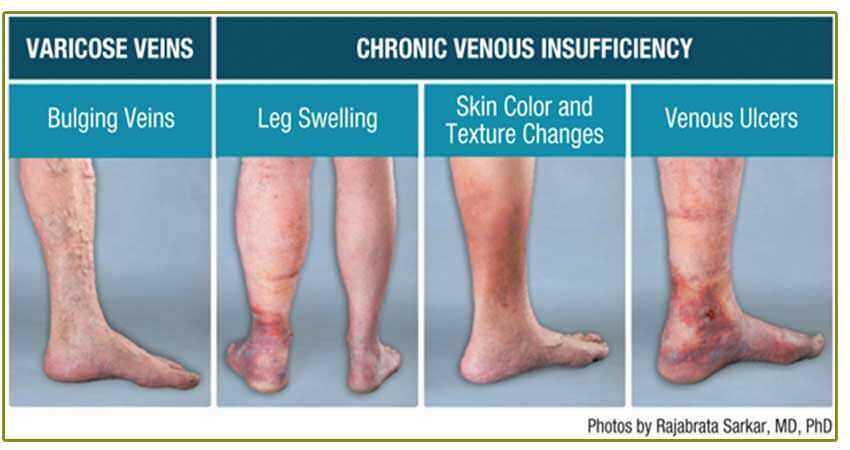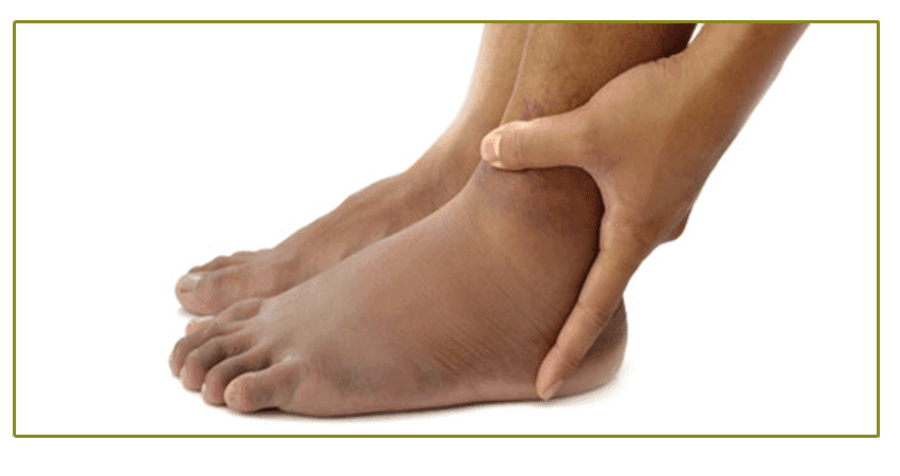
10 Myths About Venous Insufficiency
“Vein treatments are for cosmetic concerns only.” Often thought as a cosmetic nuisance, varicose veins represent an underlying venous disease that

Edema is swelling of both legs from a buildup of extra fluid. Edema is a common condition that plagues many people. In the summer months(especially in warmer climates) this condition can get much worse.
There are several medical conditions along with lifestyle choices that may cause Edema.
Standing or sitting for long periods of time, especially in hot weather, can cause excess fluid to accumulate in the feet, ankles, and lower legs. People often refer to edema that worsens during the hot weather as "heat edema".
Venous insufficiency. Tiny valves inside the veins of the legs can become weakened, causing a common problem called venous insufficiency. This problem makes it more difficult for blood to flow back to the heart, leading to a buildup of fluid and varicose veins. Increased leg swelling during the summer month is mostly associated with this problem as the veins dilate when the temperature is higher or you are active.
Severe chronic (long-term) lung diseases, including emphysema and chronic bronchitis, increases pressure in the blood vessels that lead from the heart to the lungs. This pressure backs up in the heart.
Congestive heart failure, a condition in which the heart can no longer pump efficiently, causes fluid buildup in the lungs and other parts of the body. While congestive heart failure often comes with a host of symptoms including chest pains, and high blood pressure, swelling in the feet and ankle is often the most visible.
Pregnancy can cause edema in the legs as the uterus puts pressure on the vena cava. Fluid retention during pregnancy also can be caused by a more serious condition called preeclampsia.
Low protein levels in the blood caused by malnutrition and kidney disease can cause edema. The proteins help to hold salt and water inside the blood vessels so fluid does not leak out into the tissues. If a blood protein, called albumin, gets too low, fluid is retained and edema occurs, especially in the feet, ankles and lower legs.
Liver diseases like Cirrhosis slow blood flow through the liver which results in fluid retention and swelling. This can result in uncomfortable swelling in the abdomen and edema in the legs.
Symptoms vary according to the type of edema and its location. In general, the skin above the swollen area will be stretched and shiny. You should see a healthcare provider to determine the cause of your heat edema as it may be life-threatening and require immediate medical attention.
If both legs are swollen, your doctor will ask about other symptoms to determine your risk factors and potential for a major medical condition. A urine test will show if you are losing protein from the kidneys. Blood tests, a chest X-ray and an electrocardiogram (EKG) also may be done. Arterial or Venous ultrasound tests may be done to look for blockages in your leg arteries or bad valves in your leg veins.
Treatment focuses on correcting the cause of the fluid accumulation.
Avoiding salty foods usually helps. To much salt is a common cause of fluid retention.
You also should avoid drinking too much fluid. While constant drinking of water has become very popular there is a limit to the amount of fluid your kidneys can mange.
If you are not suffering from shortness of breath, elevate your legs above the level of your heart to keep swelling down.
Your doctor might suggest that you take a diuretic.
If you have leg edema caused by venous insufficiency, elevate your legs periodically and wear support (compression) stockings.
However, there are several easy in office treatment options to help cure varicose veins. Most common of these treatment is endovenous ablation. Generally speaking these treatment options are covered by most insurance plans as they are needed to improve the flow of blood through the leg veins.
No matter what the cause of edema, any swollen area of the body should be protected from pressure, injury and extreme temperatures. The skin over the affected area becomes more fragile over time.
The outlook for edema of the legs depends on the cause. For most people with edema, the prognosis is excellent as long as you don’t ignore the problem and talk to your doctor. You should see a healthcare provider to determine the cause of your heat edema as it may be life-threatening and require immediate medical attention.